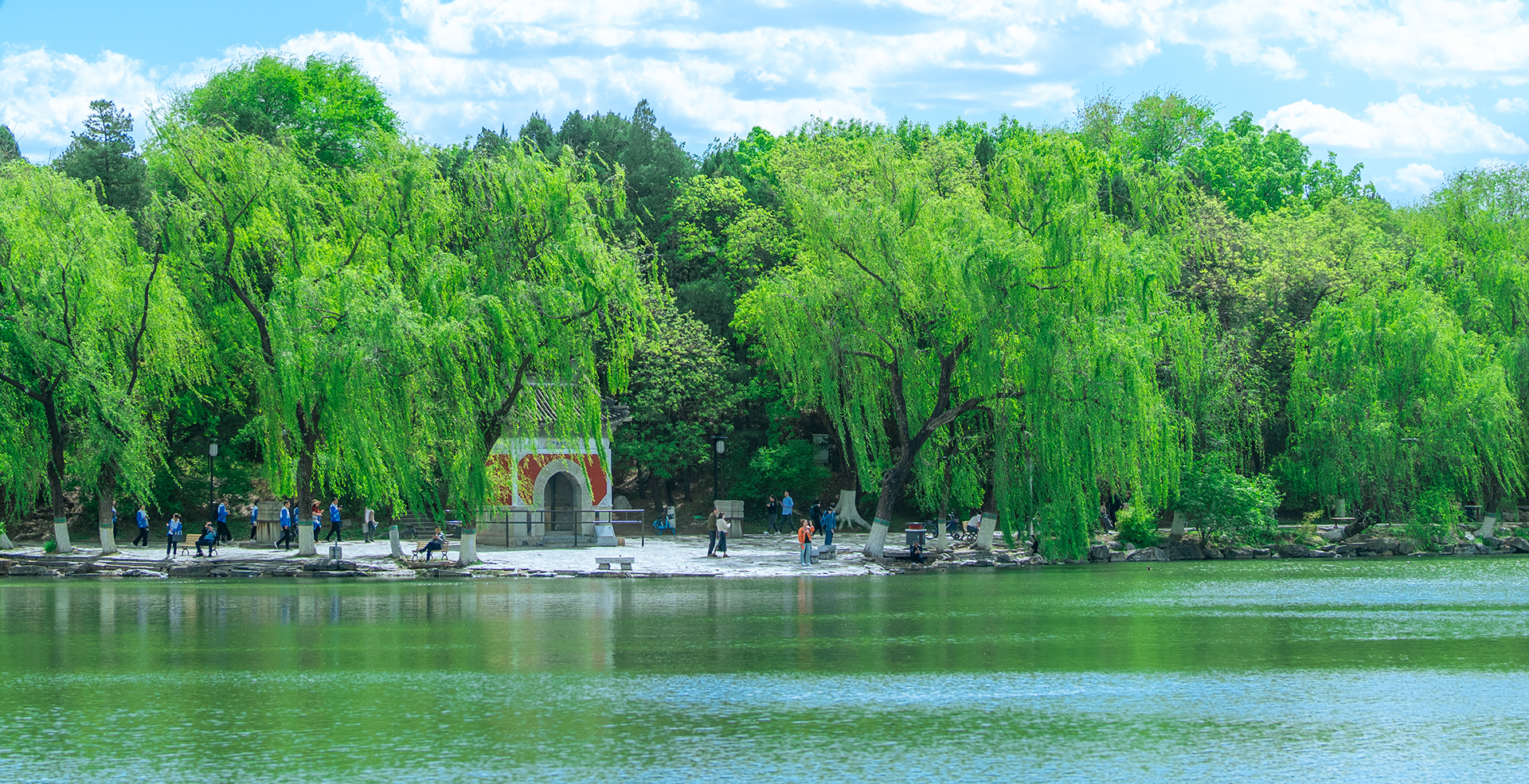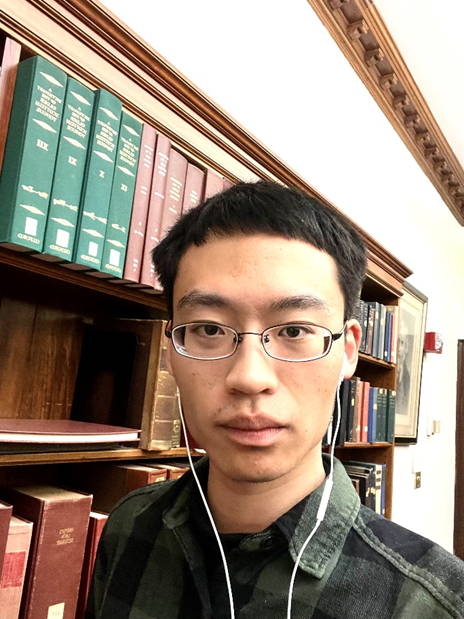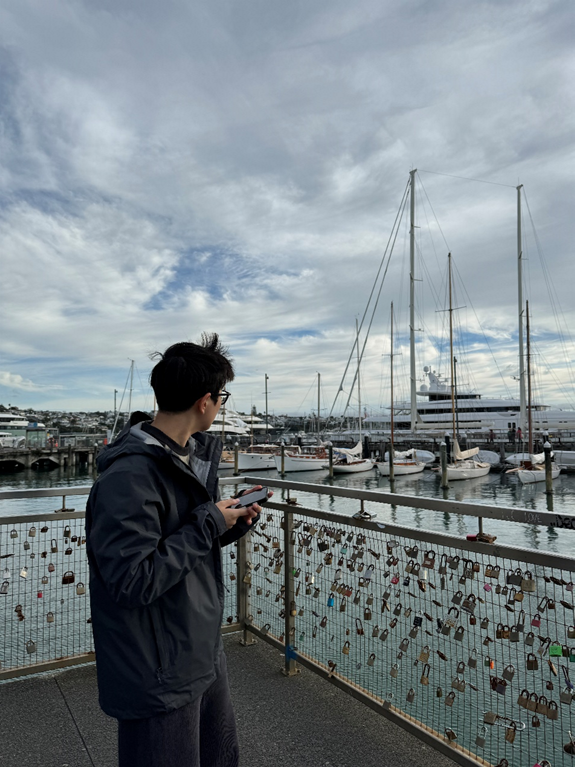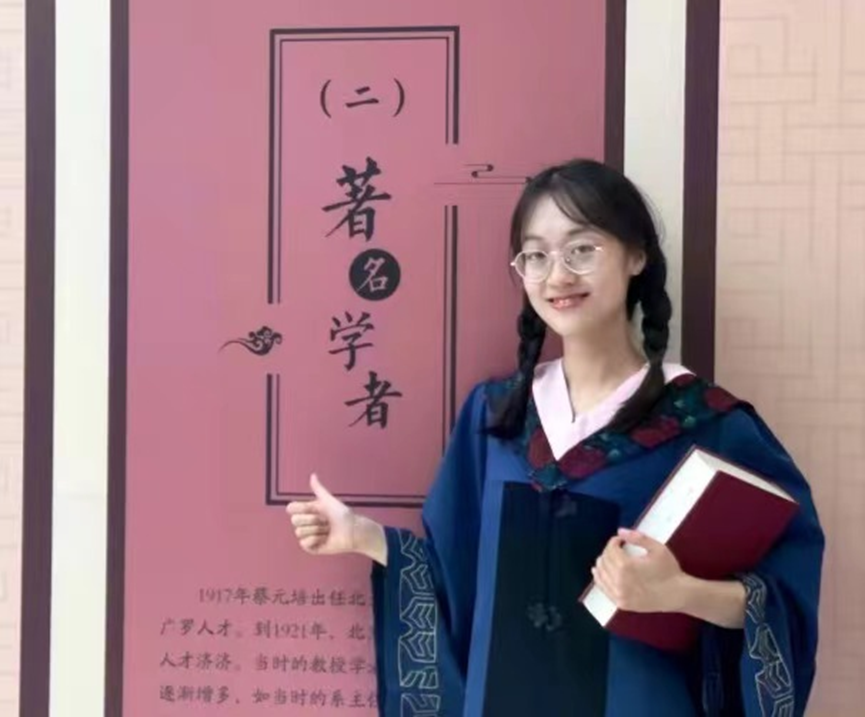Editor's note: This is a collection of reflections and memories from three alumni of the English Department, Class of 2022, at Peking University, who are currently pursuing further education in different academic fields in various parts of the world. Each piece in this collection captures moments from their time at the University, touching upon their shared and diverse experiences before and after graduation. I invite you to immerse yourself in these reflections and may you also find echoes of your own experiences within their narratives (Fan Xueyuan).
From Liu Zichen:
The years at the English Department had a formative influence on my conceptions of language, art, and the academic profession. The old institutional practice of uniting literature, linguistics, and philology was still thriving in my BA years. It fostered my broad interest in everything textual, which continues to define my own approach to the humanities as a whole.
A recent photo of Liu Zichen
In the MA years, I was surrounded by highly motivated students with strong passions for learning and for life. The times we spent together working, slacking, and panicking were golden memories.
In general, I cannot say I spent the years wisely. I was always in search of my real self, with more failure than success. Now looking out of my apartment window, New England summer is quiet, humid, and neatly pleasurable. Yet I sometimes miss the chaos that I experienced and tried to fight against back then, the chaos that yielded so many serendipities even if I had little self-awareness.
From Xu Linlin:
I am very appreciative of the rigorous education and priceless insights I received as I went from my Master's degree in English Language and Literature at Peking University to my Ph.D. studies in Auckland. To my fellow grads, I wish you well and hope you approach each task with interest and fortitude.
A recent photo of Xu Linlin
We now possess a strong toolset from our schooling that helps us effectively navigate challenging literary environments and make valuable contributions to academic discussions. Cherish the friendships you've made, stay rooted in your community, and never give up learning new things. There is so much promise for the future, and when we work together, we can do amazing things.
From Ren Xiaoyan:
I’m now a Ph.D. student in the East Asian Languages and Cultures Department at the University of Illinois, Urbana Champaign. I study modern Chinese history, with a focus on the history of information. While what I’m working on right now appears to be a bit distant from my previous focus as an English literature major at PKU from 2019 to 2022, the three years at PKU definitely shaped my academic taste and prepared me for further academic research. In various professors’ classes and in the quiet main library, day and night sitting on the hard chairs, I was exposed to dramatically different interpretations of the world (about mankind, flora, fauna, space, language) and texts (biblical, classical, academic and vernacular) offered by souls of various regions, time period, religious background, and political stances.
I came to a personal enlightenment that everything that I had taken for granted was in fact culturally specific, shaped and conditioned through either thrilling or hardly noticeable historical forces. This epiphany drew me to the field of history of science, which, as I understand it, studies the ways in which human beings try to understand, interpret, theorize, explain, and predict the world.
A recent photo of Ren Xiaoyan
I can still vividly recall the small reading group led by Prof. Gao Fengfeng; it was in that reading group that I read about the quarrel between the ancient and the modern, an elongated debate starting in the late 17th century that largely shaped what we understand as science and modern academic research today. It led me to work on the obscure figure Sir William Temple for my MA thesis. As the trigger of the quarrel between the ancient and the modern, Sir William Temple probably gained the upper hand in the debate at his time, but turned out to be on the losers’ side when viewed with post-Enlightenment hindsight. Those who deemed “natural philosophy” as “trivial,” like Temple, were doomed to be forgotten in our current scientophilia world. These understandings that I acquired as a student at PKU prepared me to study how knowledge was produced and circulated in various contexts - a major focus of information history that I’m working on right now.
Another side of my life at PKU features me with less intellectual but more secular enjoyments. Having been in the U.S. for two years straight and tired of the expensive and “inauthentic” Chinese food around, I begin to appreciate the delicious, convenient, diverse, and super inexpensive Chinese cuisine that I had at PKU offered by not only the canteens but also restaurants around campus and the “goose-leg” aunt.
I can also recall fond memories with friends exploring museums, exhibitions, shopping malls, concerts, cinemas, yoga studios, parks, modern and ancient observatories, famous and obscure historical sites, plants and birds, subway lines, and wilderness in Beijing. It was an enriching experience for me to live in such a diverse city on a vibrant campus for three years. “Worry less about your deadlines and your future, enjoy yourself as much as you can!” This would be what I want to say to the past me, and to whoever is having the blessing to be studying at PKU right now.
This piece is featured in PKU News' "Graduation 2024" series.
Edited by: Fan Xueyuan
Photos by: Courtesy of the interviewees



